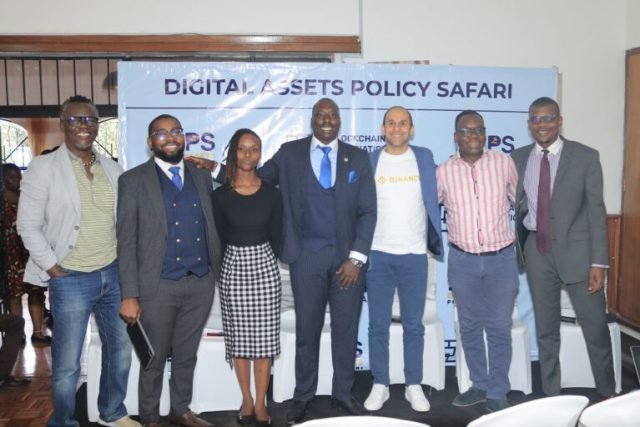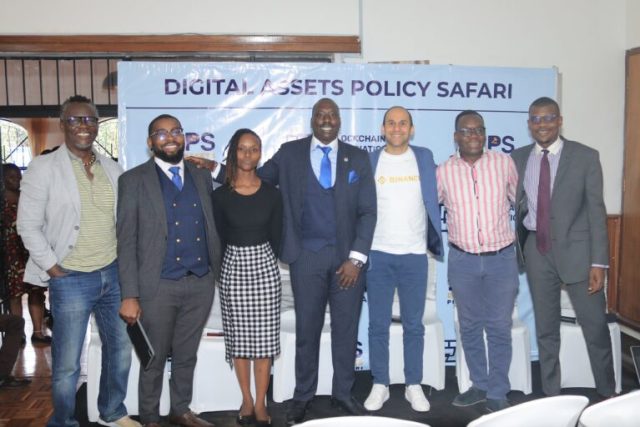The Blockchain Association of Kenya (BAK) will introduce the nation’s first-ever community-led Virtual Assets Service Provider (VASP) draft bill for the digital asset sector.
It was first released on January 22, 2024, and is accessible for review and comment in the public domain.
As of right now, the advocacy group’s digital asset community has provided an incredible amount of contributions, comments, and critiques.
Kenya’s digital asset market has been negatively impacted by issues with consumer protection, including frauds, entrance restrictions for new companies in the space, and a burdensome tax code on digital assets.
Therefore, three months ago, Kenyan MPs ordered the community-based business lobby group to create a draft bill governing cryptocurrency assets in the nation.
According to Michael Kimani, the Blockchain Association of Kenya’s founder and chairman, the group was established in 2017 with the goal of elevating Kenya’s standing as a hub for digital assets on par with that of other jurisdictions like Singapore and Dubai. In order to fulfil this goal, the draft bill is an important step. He added that “the move to task a community-born industry group to draft the bill was a rare one, not just in Africa but in the rest of the world.” .
The group sought to include a collaborative approach to crafting the law, so in April 2023 it started by hosting a series of policy-focused neighbourhood town halls to gather momentum.
A month later, the association secured a meeting with lawmakers from the National Assembly’s Departmental Committee on Finance and National Planning, who tasked them with crafting a bill to govern the cryptocurrency industry in Kenya.
The team was led by the Director of Public Policy and Regulatory Affairs, Allan Kakai, who fostered collaboration between legal professionals, regulatory authorities, and industry players.
Regulation of digital assets has been a contentious topic in the last year, with developed countries such as the United States, Hong Kong, and Singapore setting the tone for reigning in an industry perceived as wild west by mainstream financial regulators.
Nigeria and South Africa are two African nations that have previously implemented legislation to control the sector, which is thought to facilitate capital flight and open doors for illicit activities like money laundering.
The Blockchain Association of Kenya (BAK) has developed a draft VASP Bill that solidifies Kenya’s position as a hub for digital assets as well as a hub for finance and technology, or the “silicon savannah.” If the law is approved, much-needed tax money would start to flow into Kenya’s National Treasury.
Furthermore, the advocacy group maintains that Kenya might attract investment into certain profitable areas including climate change, agricultural supply chains, and micro, small, and medium-sized businesses by fostering business and company innovation.

In addition, the lobby group insists that by enabling business and enterprise innovation, Kenya could unlock investment inflows into some productive sectors such as agricultural supply chains, climate change, and micro, small, and medium-sized enterprises (MSMEs) at a time when Kenya’s government is struggling to fundraise for projects such as the Affordable Housing Scheme, tame the decline of the shilling against the dollar, and meet its short- to medium-term debt obligations.
“Digital assets and blockchain present an opportunity for the Kenyan government to tap into new ways of raising investment in the country to support Kenya’s economic recovery,” stated Paul Gachora, co-founder and CEO of the BAK.
Our goal is to help Kenya raise $1 billion in foreign direct investments in various sectors as outlined in Kenya’s medium-term economic plan by 2027.”
Everyone affected by the draft VASP bill is encouraged to continue to share feedback on the bill and stay tuned for ongoing development.
The next milestone on the digital asset policy safari (a quip on the policy roadmap) is to develop a policy report to accompany the bill to parliament for passing, as well as a pilot to demonstrate the potential of digital assets and blockchain to support Kenya’s economic recovery.
The policy report would cater to consumer protection, education and awareness, and how to leverage digital assets and blockchain for Kenya’s economic recovery.







